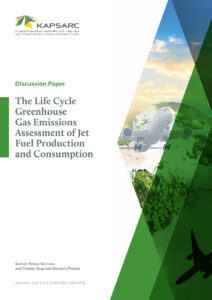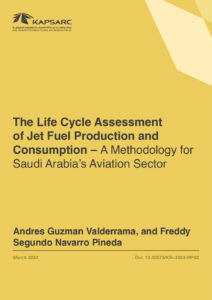Transportation is a fundamental driver of economic growth but also a significant contributor to environmental challenges such as air pollution and climate change. The Kingdom of Saudi Arabia (KSA) has set ambitious objectives to diversify and decarbonize its economy in order to achieve net-zero emissions by 2060. To support decision-making on decarbonizing KSA’s transport sector, it is essential to understand the carbon impacts of current and alternative powertrains over their entire life cycles. This report develops a comparative greenhouse-gas-focused life cycle assessment (LCA) methodology for passenger vehicles, road freight, aviation, and marine transport, covering a range of major powertrain types and fuel chains. The transport modes are assessed under two energy scenarios: business as usual (BAU) and dynamic low carbon (DLC). The BAU scenario is based on the conditions of the electricity generation mix in 2022, and the DLC scenario extends to 2035, accounting for temporal aspects such as the increasing share of low-carbon and renewable energy in KSA’s energy system during the lifespan of different transport modes. By combining the standardized LCA framework with relevant methodological choices, the report assesses the life cycle of greenhouse gas (GHG) emissions for four types of transport – passenger, road freight, aviation, and maritime.
20th May 2025


